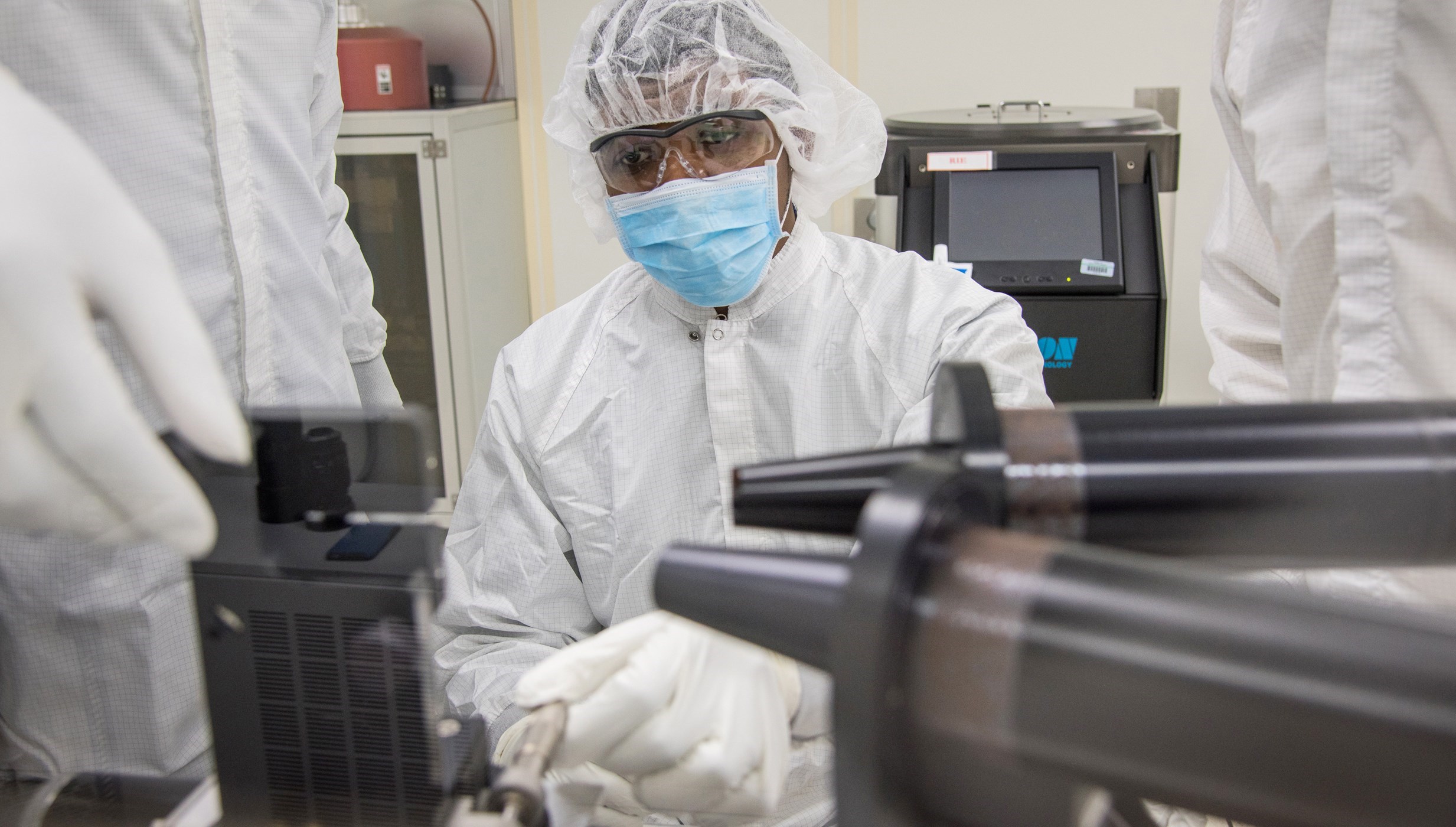We See the Motivation in You.
We see your greatest potential and your motivation to achieve. We see you at NSU.

Doctor of Philosophy in Materials Science and Engineering
The Ph.D. in Materials Science and Engineering program prepares students for careers in industry, federal or private research laboratories, and academia. The program transitions students from physical sciences, engineering, and related fields into the discipline of materials science and engineering while broadening their professional opportunities.
What to expect as a student
All students are required to complete a total of 75 credit hours, including research and thesis preparation credits. This requirement includes the following 12 semester hours of core courses:
- MSE 600 Materials Science Seminar I
- MSE 601 Materials Science Seminar II
- MSE 605 Ethics of Scientific Research and Professional Preparation and Conduct Technical
- MSE 530 Introduction to Materials Science
- MSE 533 Chemistry of Modern Materials and Polymers
- MSE 535 Electronic and Photonic Materials Engineering
In addition to the 12 credit hours of required core courses, students must complete nine (9) credit hours of approved technical core electives out of the following:
- CHM 545 Mathematical Methods for Materials Science
- PHY 580 Quantum Mechanics for Materials Science
- MSE 575 Basic Instrumentation for Materials Science
- MSE 635 Optical Materials
- MSE 607 Materials for Nanotechnology
- MSE 609 Introduction to Computational Materials Science
- MSE 580 Advanced Organic Synthesis and Characterization
Students also must select nine (9) credit hours of technical electives, depending on their research interest among the following:
- CHM 573 Advanced Inorganic Chemistry
- CHM 633 Molecular Dynamics
- CHM 663 Atomic and Molecular Spectroscopy
- PHY 653 Solid State Physics
- PHY 675 Electricity and Magnetism
- MSE 660 Organic Optoelectronic Materials and Devices
- MSE 704 Thin Film Phenomena
- OEN 630 Opto-electronic Devices
- EEN 650 Microelectromechanical Systems
- OEN 661 Optics and Lasers
- MSE 703 Materials and Devices for Solar Energy Conversion
Finally, all students are required to complete 45 credits of research and dissertation course work. A dissertation committee, composed of the student’s advisor, two other Materials Science and Engineering faculty members, one NSU non-CMR faculty member, and a fifth committee member outside of NSU advises the students through his/her research work. The dissertation is defended in an open forum as the Final Dissertation Defense. After the delivery and approval of a finalized dissertation manuscript, the Ph.D. degree will be awarded.
Ph.D. Program Outcomes
Intended Student Learning Outcomes:
- The student will demonstrate fundamental and current materials science knowledge and analytical skills.
- The student will apply knowledge and skills to lead and work independently on interdisciplinary research projects which lead to substantial contributions to the field.
- The student will demonstrate good oral and written communication skills and be able to present information in a professional setting.
- The student will demonstrate an understanding and appreciation of professional ethics and responsibilities.
- The students will apply a broad understanding of materials science and engineering to provide solutions in a global and societal context.
Intended Program Outcomes:
Graduates will have the knowledge and professional skills necessary to serve in the academic, government, research and private sectors working in areas related to materials science and engineering.
Opportunities for Students
Graduate students have the opportunity to work on projects with external research organizations including national laboratories, industries and universities. Among our partners are NASA Langley Research Center, Thomas Jefferson National Laboratories, Cornell University, University of Michigan, University of Arizona, Purdue University, the NSF Science and Technology Center on Real-Time Functional Imaging (STROBE) at the University of Colorado, and the 2D Crystal Consortium-NSF Materials Innovation Platform at Penn State University. Students regularly attend national and international conferences where they present their research results.
Where will my degree take me?
Graduates of the NSU Materials Science and Engineering programs have obtained employment at government agencies and companies including Exxon, Intel, IBM, and Solvay. They have also obtained faculty or post-doctoral positions at various universities.